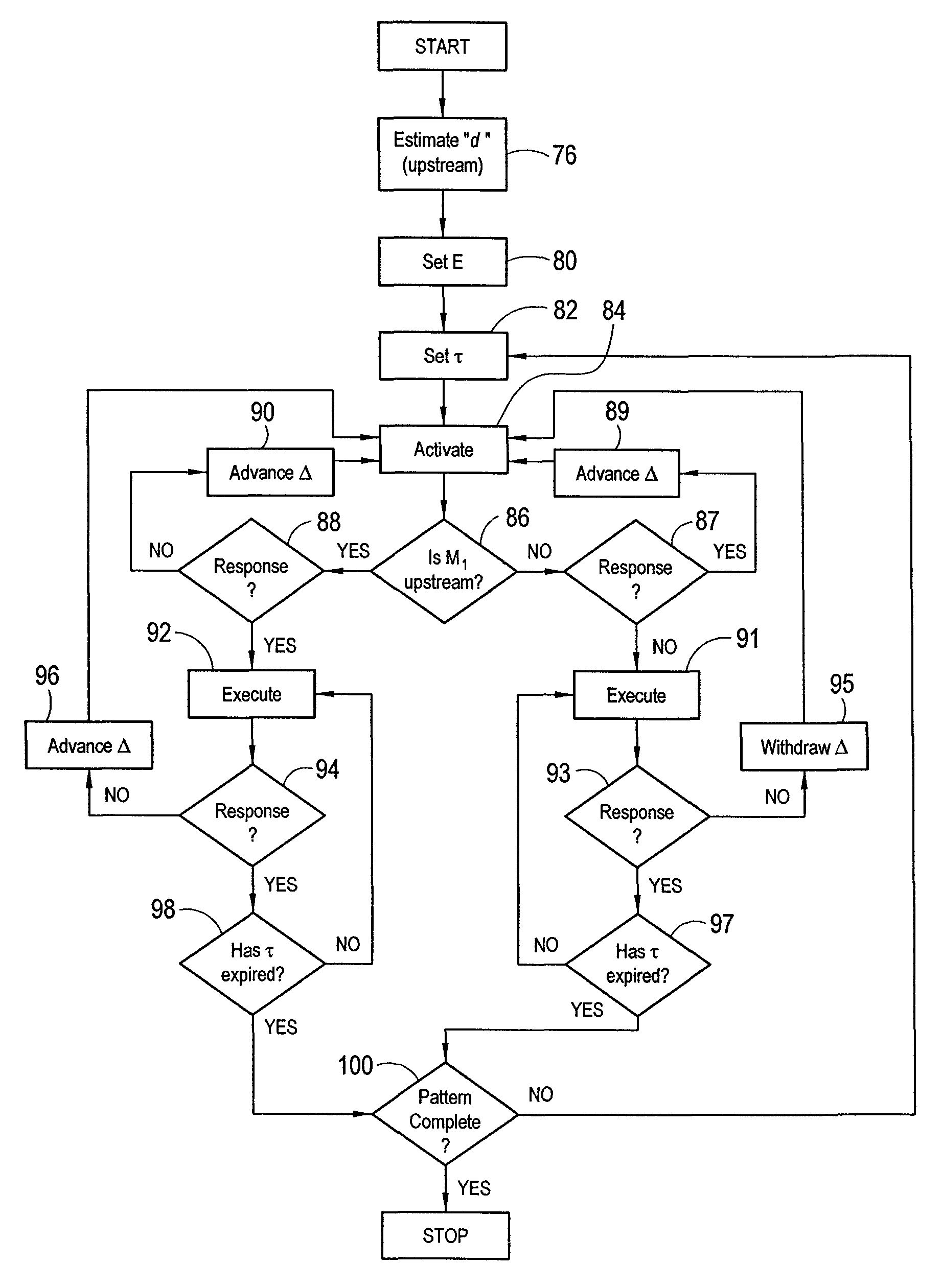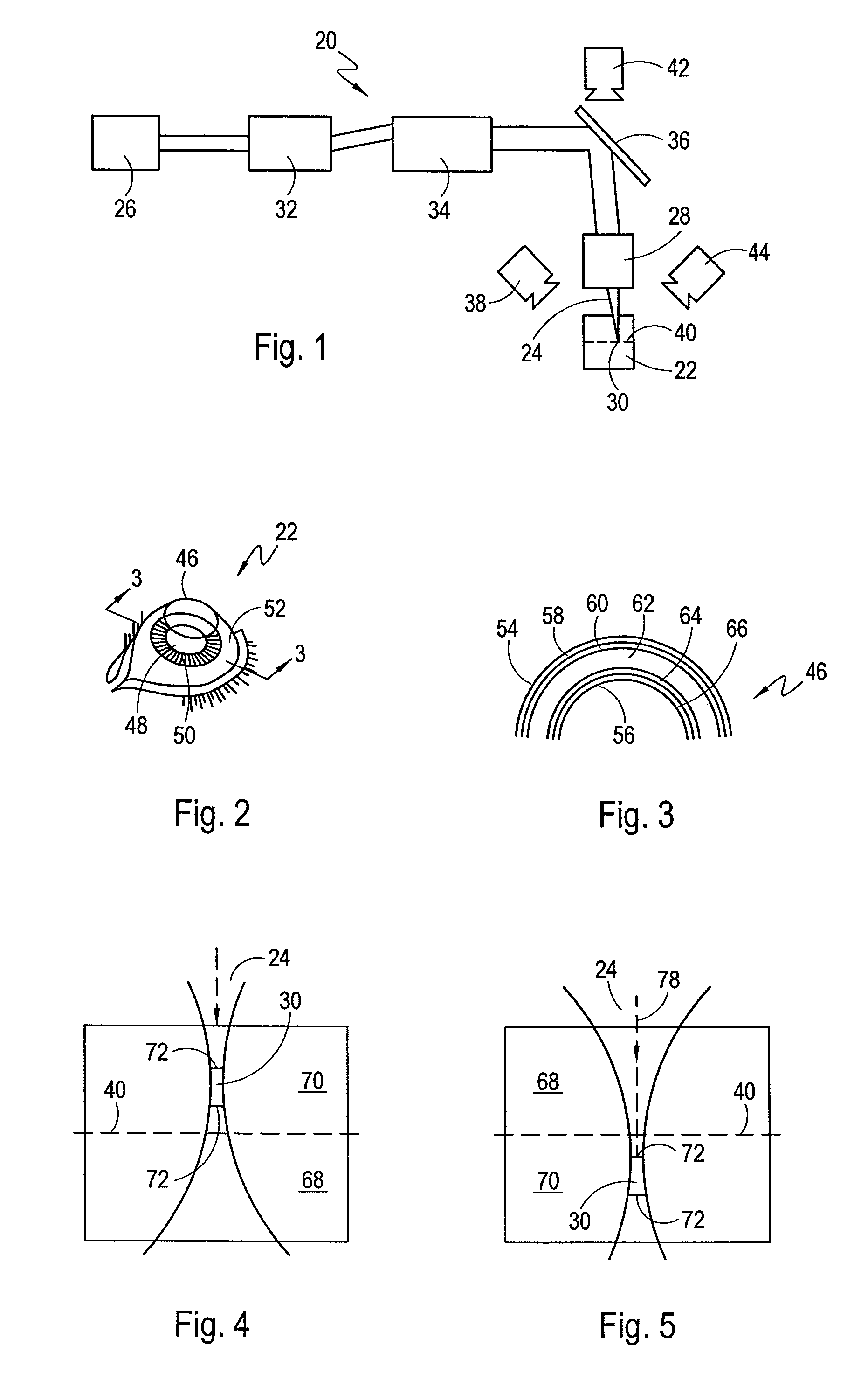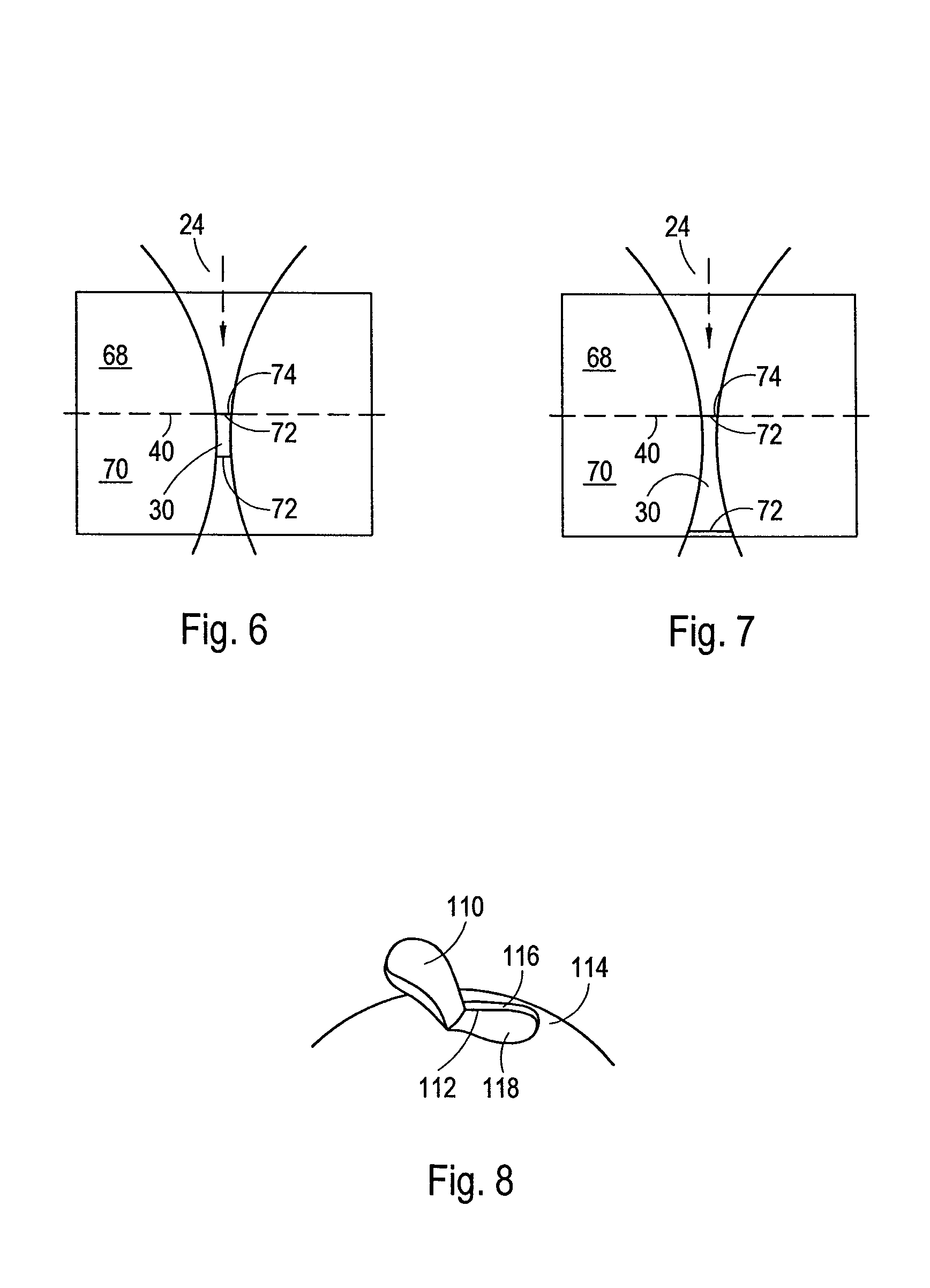Devices and methods for separating layers of materials having different ablation thresholds
a technology of ablation threshold and material layer, applied in the field of laser surgery procedures, can solve the problem of unharmed non-targeted material, and achieve the effect of avoiding or minimizing inadvertent photoablation of targeted material
- Summary
- Abstract
- Description
- Claims
- Application Information
AI Technical Summary
Benefits of technology
Problems solved by technology
Method used
Image
Examples
Embodiment Construction
[0029]Referring initially to FIG. 1, a laser system 20 is shown for conducting a intracorneal laser procedure on an eye 22. As shown, the eye 22 is aligned to receive an ultra short pulsed laser beam 24 from the laser system 20. As detailed further below, the pulsed laser beam 24 having selected parameters is generated by a laser source 26. The laser system 20 includes a focusing unit 28 for focusing the beam 24 to its focal point 30. Also included in the laser system 20 is a scanning unit 32 for directing the beam 24. In addition to the laser source 26 and focusing unit 28, the laser system 20 includes a scanning unit 32 for directing the laser beam 24. Also provided in the system 20 is a telescope 34 for collimating the beam 24 after it is directed by the scanner 32. Downstream of the telescope 34 is a reflector 36 that redirects the laser beam 24 toward the eye 22 through the focusing unit 28.
[0030]While not directly involved with the generation and control of the laser beam 24, ...
PUM
 Login to View More
Login to View More Abstract
Description
Claims
Application Information
 Login to View More
Login to View More - R&D
- Intellectual Property
- Life Sciences
- Materials
- Tech Scout
- Unparalleled Data Quality
- Higher Quality Content
- 60% Fewer Hallucinations
Browse by: Latest US Patents, China's latest patents, Technical Efficacy Thesaurus, Application Domain, Technology Topic, Popular Technical Reports.
© 2025 PatSnap. All rights reserved.Legal|Privacy policy|Modern Slavery Act Transparency Statement|Sitemap|About US| Contact US: help@patsnap.com



